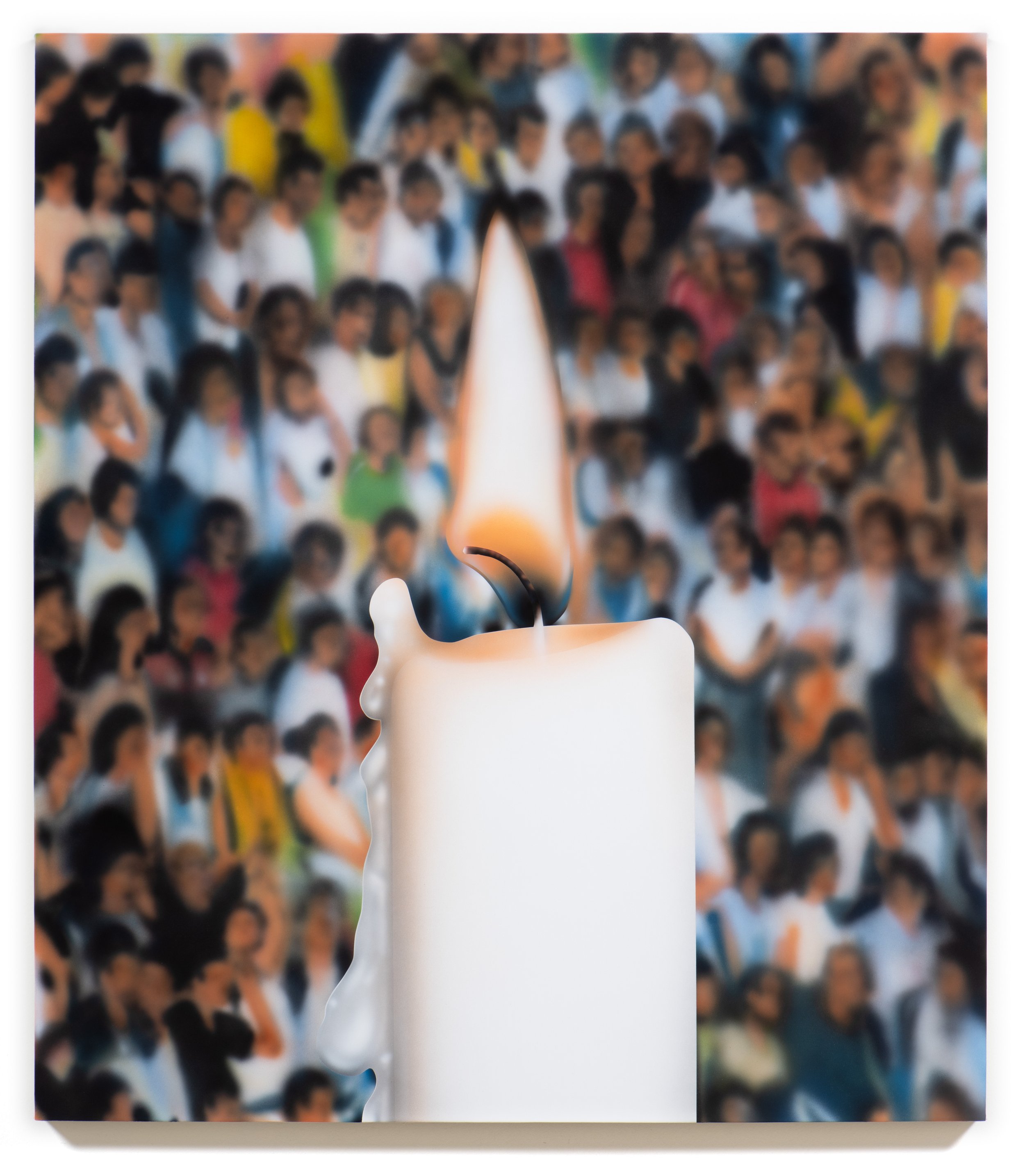Aaron Elvis Jupin
works exhibitions news about
layman’s terms, tongue tied
January 8 - February 5, 2022









press release
Moskowitz Bayse is pleased to present Layman’s Terms, Tongue Tied, an exhibition of new paintings by Los Angeles-based artist Aaron Elvis Jupin. This exhibition is the artist’s first solo presentation in Los Angeles, and will be on view from January 8 - February 5, 2022.
One way to understand the physical character of post-Reagan America is by hoisting open the squeaky door of an overstuffed two-car garage. The cobwebbed scene takes place on water-spotted concrete, somewhere on the city’s sprawling outskirts: plastic trophies and light-sabers jut out of brittle cardboard boxes, and seasonal decorations, having outlived their owners’ festiveness, lay entombed in plastic bins. Say, think that old printer still works? The enormous wooden ladder that used to give you splinters seems short and toothless now. And the house is on fire. So is the whole town…and the surrounding woods. The last butterfly flies out of the old haunted bush and floats on by; the witch’s hat flashes again before your eyes. You’re left speechless while a sheet of paper inches into the printer’s tray.
In Aaron Elvis Jupin’s Layman’s Terms, Tongue Tied, a frantic and decaying culture turns into salt as it looks back toward the burning Gomorrah, pining for a time when images were absolute, information could logically assemble into truth, and the persistent buzzing of evil was just a low hum. Nostalgia, preserved in the enduring confusions of childhood, proves misplaced, as Jupin’s paintings return the viewer to a state of hallucinatory misremembrance. A sense of calm–rooted in assurance and/or resignation–somehow prevails.
In his paintings, where meticulously executed surfaces bely associative, improvisational content, Jupin concretizes fleeting thoughts and feeble memories. Tissue for Your Issue evokes seasons passing by way of destruction, rebirth, and dull panic, as the tissue-box-as-portal-as-calendar obscures a burning house. With impeccable timing, the strange object blithely offers relief for smoky, tear-filled eyes. Elsewhere, a melting candle serves as a mass spectator event in An Organic Murmur, Leave Your Lungs Hurting, with the nightmarish close-up in Realize, Worse Than Your Lying looking on with detached resignation. Immediate imagery gives way to veiled metaphor.
Jupin’s America fixates on symbols and symptoms without consideration of their meanings or causes; visual signifiers have replaced their real counterparts, aided by the soporific mass-embrace of subjectivity. Thus, the artist’s barbed love letters to suburbia exist within mirrored silos, where an image’s meaning is firmly conditional and constantly shifting. While the wart-nosed, pointy-hatted witch remains an effective shorthand for general wickedness to some, it also serves as a martyr figure for others: self-sustaining, queer, defiant.
Like the witch, contested tropes become living allegories of a society fast asleep in a burning tract home. Memory’s bizarre vagaries and tangential associations are reconsidered not as anomalies, but products of information overload and emotional displacement. Jupin’s burning neighborhood turns out to be America’s glowering reflection; waxy ghouls and gnarled jeerers become sympathetic cohorts amid perpetual reshufflings of moral certitude. But also like the witch, Jupin’s paintings contain resilient optimism. Symbols possess immense power in the artist’s world as in ours, serving as reminders that meaning and narrative are always up for grabs.
